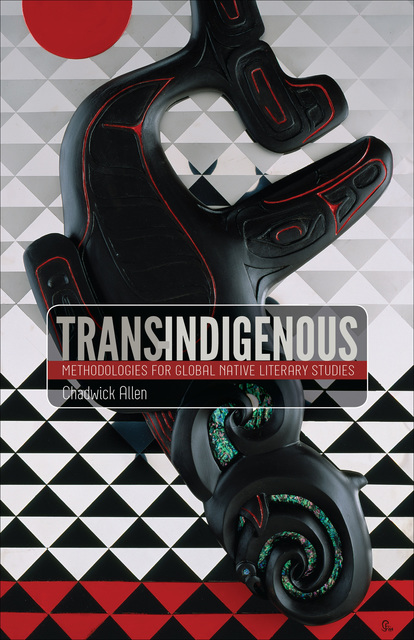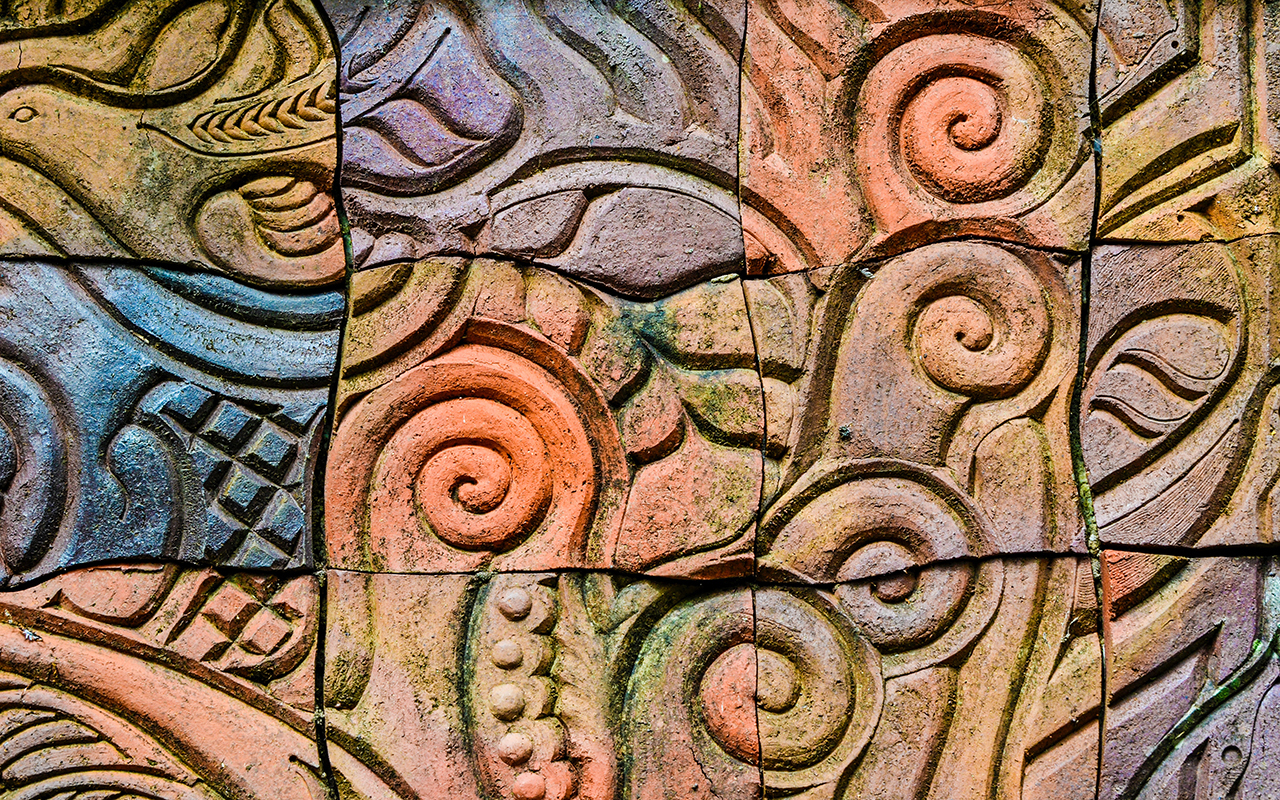Trans-Indigenous
Methodologies for Global Native Literary Studies
What might be gained from reading Native literatures from global rather than exclusively local perspectives of Indigenous struggle? In Trans-Indigenous, Chadwick Allen proposes methodologies for a global Native literary studies based on focused comparisons of diverse texts, contexts, and traditions in order to foreground the richness of Indigenous self-representation and the complexity of Indigenous agency.
Through demonstrations of distinct forms of juxtaposition—across historical periods and geographical borders, across tribes and nations, across the Indigenous–settler binary, across genre and media—Allen reclaims aspects of the Indigenous archive from North America, Hawaii, Aotearoa New Zealand, and Australia that have been largely left out of the scholarly conversation. He engages systems of Indigenous aesthetics—such as the pictographic discourse of Plains Indian winter counts, the semiotics of Navajo weaving, and Maori carving traditions, as well as Indigenous technologies like large-scale North American earthworks and Polynesian ocean-voyaging waka—for the interpretation of contemporary Indigenous texts. The result is a provocative reorienting of the call for Native intellectual, artistic, and literary sovereignty that fully prioritizes the global Indigenous.

Background photo by Aleza van der Werff on Unsplash

Table of Contents
Metadata
- rightsA section of the Introduction originally appeared in “A Transnational Native American Studies? Why Not Studies That Are Trans-Indigenous?,” Journal of Transnational American Studies 4, no. 1 (2012). An earlier version of chapter 1 originally appeared as “Unspeaking the Settler: ‘The Indian Today’ in International Perspective,” American Studies 46, no. 3–4 (Fall–Winter 2005), and in Indigenous Studies Today 1 (Fall 2005–Spring 2006): 39–57. An earlier version of chapter 3 originally appeared as “Engaging the Politics and Pleasures of Indigenous Aesthetics,” Western American Literature 41, no. 2 (Summer 2006): 146–75. An earlier version of chapter 4 originally appeared as “Rere Kē/Moving Differently: Indigenizing Methodologies for Comparative Indigenous Literary Studies,” Studies in American Indian Literatures 19, no. 4 (Winter 2007): 1–26, and in Journal of New Zealand Literature 24, no. 2 (2007): 44–72. A section of chapter 5 originally appeared as “Serpentine Figures, Sinuous Relations: Thematic Geometry in Allison Hedge Coke’s Blood Run,” American Literature 82, no. 4 (December 2010): 807–34.
“Burial Mound” by Allison Hedge Coke is reproduced courtesy of the poet and Salt Publishing. “Sad Joke on a Marae” by Apirana Taylor is reproduced courtesy of the poet. “Blood Quantum” by Naomi Losch is reproduced courtesy of the poet. “Comparatively Speaking, There Is No Struggle” by Jacq Carter is reproduced courtesy of the poet. “Celebrators ’88” by Kevin Gilbert is reproduced courtesy of his estate. “Carnegie, Oklahoma, 1919” by N. Scott Momaday is reproduced courtesy of the poet. “When I of Fish Eat” by Rowley Habib, with illustrations by Ralph Hotere, is reproduced courtesy of the Maori Purposes Fund Board. “Waka 29: waka taua,” “51,” and “53” by Robert Sullivan are reproduced courtesy of Auckland University Press. “The buffalo grass is still” from Indians’ Summer by Nasnaga reprinted by permission of HarperCollins Publishers; copyright 1975 by Nasnaga.
Every effort was made to obtain permission to reproduce material in this book. If any proper acknowledgment has not been included here, we encourage copyright holders to notify the publisher.
Copyright 2012 by the Regents of the University of Minnesota
- isbn978-1-4529-7246-6
- publisherUniversity of Minnesota Press
- publisher placeMinneapolis, MN
- restrictionsAll rights reserved. No part of this publication may be reproduced, stored in a retrieval system, or transmitted, in any form or by any means, electronic, mechanical, photocopying, recording, or otherwise, without the prior written permission of the publisher.
- rights holderRegents of the University of Minnesota
- series number12
- series title

